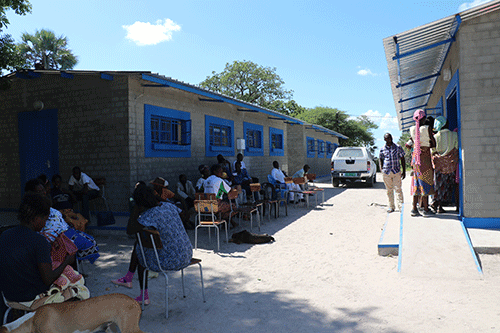Marythar Kambinda
KATIMA MULILO – The Ministry of Home, Affairs, Immigration Safety and Security concluded its ID duplicate rollout in the Zambezi region last Friday.
The rollout was necessitated by an agreement by President Hage Geingob and president Mokgweetsi Masisi of Botswana on 23 February 2023, to allow citizens from Namibia and Botswana to travel between the two countries with the new identity documents.
The rollout, which started Monday 13 March 2023 at Nakabolelwa and further covered Ngoma, Ioma, Mutikitila and ended at Ibbu in the Zambezi region, was described as a success by Re-Loux Tapelo, the chief administration officer in the ministry.
Tapelo said the rollout targeted inhabitants along the Chobe River to enable them to travel to Botswana with the new identity document instead of a passport.
The community praised the government for introducing this system free of charge within the area, as more than 1 000 people turned up for registration.
He, however, noted they have encountered challenges, such as people who are not inhabitants of those particular areas turning up for registration.
“We, however, do not turn anyone back; we have accommodated everyone,” he said.
The induna at Ibbu, Kenneth Munihango, was thankful for the team sent by the ministry to assist community members with the registration.
“We have relatives in Botswana, and we can now visit without the difficulty of obtaining a passport, which is too costly, but we have now been assisted with obtaining the new identity cards free of charge,” he said.
“We started with the elderly first, followed by the youth. No problems were encountered, as people are also busy socialising,” he said.
Isabell Kwenani, a teacher at Ibbu, said it was difficult to obtain passports. “We are now going to be able to visit our relatives in Botswana regularly without worrying about our passports getting full,” she said.
She further said apart from the distance, the long queue in town to obtain passports was also a problem.
“The government has now brought this service closer to us, and I didn’t even take long in the queue,” said Kwenani.
Another teacher at Ibbu, Joseph Simasiku, said the government indeed listened to the cries of the people.
“I am very happy right now, as this initiative has not cost me a cent. It was not only free but services were brought closer to the people, and no one had to travel to town,” he said.
– mkabinda@nepc.com.na



